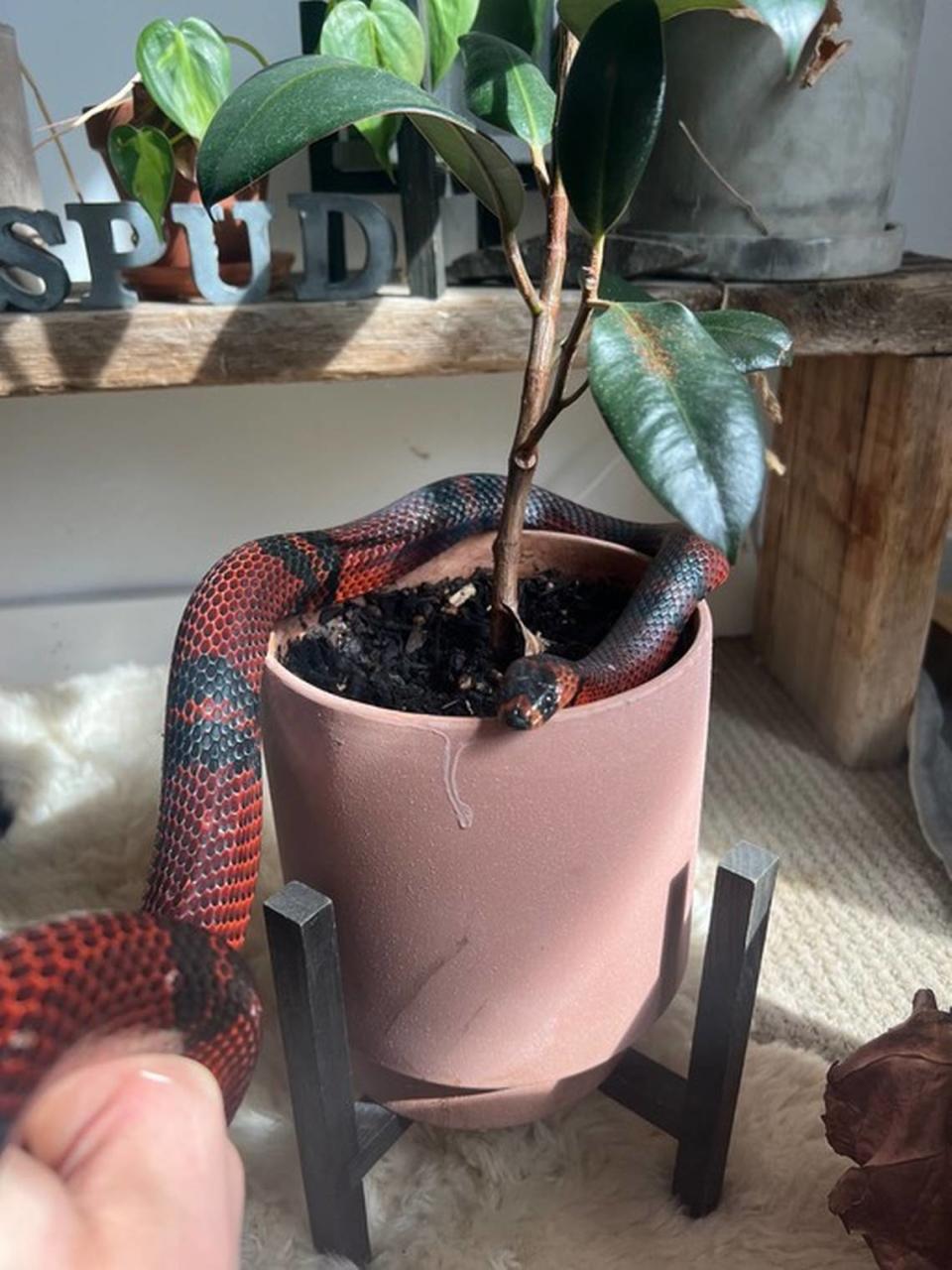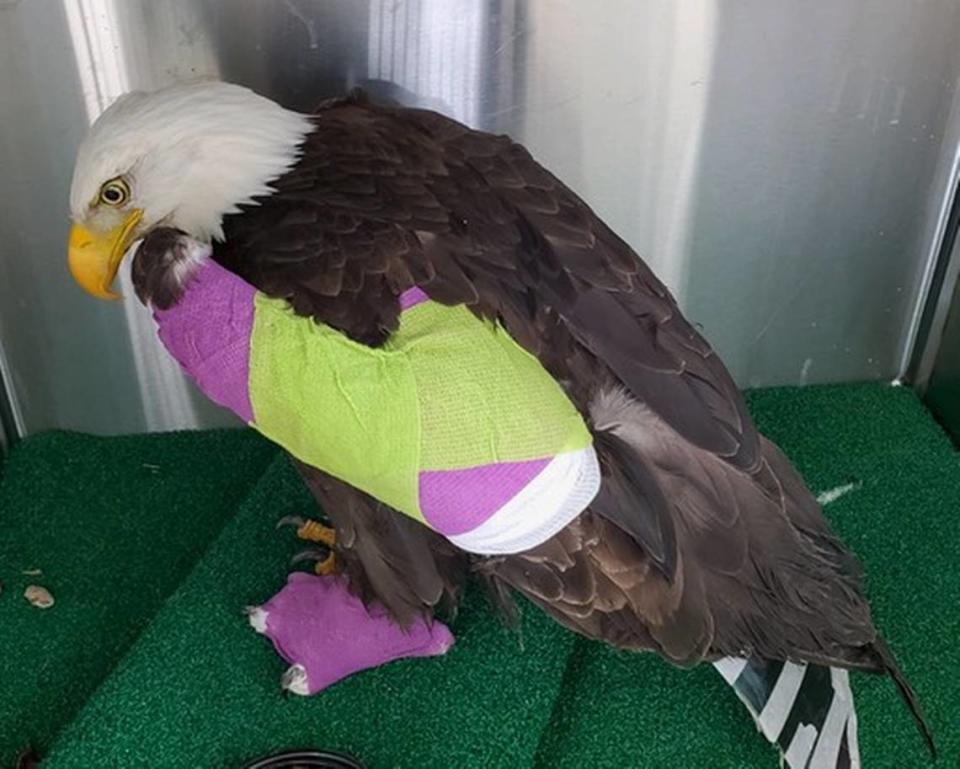Slithery surprise found in Oregon thrift store donation. Now it’s in WA state
A Hermiston, Ore., Goodwill worker got a shock when they opened a donated box of items to find an exotic red and black snake measuring several feet long.
It’s not clear whether it was an intentional donation by someone who wanted to be rid of the snake or the snake just hitched a ride in the box.
But it ended up with Jared Mitchell of U.S. Department of Agriculture Wildlife Services, who gave Blue Mountain Wildlife Rehabilitation and Education a call.
“I’ve got this snake,” Lynn Tompkins, the executive director of the nonprofit in Pendleton, Ore., remembers Mitchell saying.
He was pretty sure it was a pet, she said.
Tompkins agreed to take a look and knew just who to call for help — former Blue Mountain intern Adrian Slade at Central Washington University in Ellensburg.
Tompkins remembered she was “really into snakes.”
It took some sleuthing, but they determined it was not a species prohibited in Oregon or Washington and they further narrowed its identity to being a Honduran milk snake.
Wikipedia says the species is nonvenomous. It’s found in Honduras, Nicaragua and Costa Rico but is bred in captivity.

The species’ bright coloring and docile nature makes it attractive as a pet, according to Wikipedia.
Blue Mountain Wildlife serving Eastern Washington and Oregon usually takes in injured birds, primarily raptors, not snakes. So it handed over the Honduran milk snake to Slade’s care.
The snake is doing well and Tompkins expects it to be donated to Central Washington University.
That was not the only interesting case Blue Mountain Wildlife got involved in recently, according to its latest newsletter.
Bald eagle and starlings
▪ Two Blue Mountain Wildlife volunteers responded to a call from a woman who was hearing scrambling noises in the wall behind her microwave oven in the Tri-Cities.
They took the microwave down and found two starlings in the vent.
The birds were released into the wild and the woman was encouraged to install a cover on her microwave vent.
▪ Blue Mountain Wildlife also took in a bald eagle found near Baker City, Ore.

Its hallux, or first toe, and its left wingtip were broken. In addition it had a blood lead level more than double the amount considered toxic.
The eagle is responding well to injections of a chelating chemical that binds with lead in the blood to remove it from the body. But his bones also will need to heal well enough to maneuver in flight and to allow it to grasp prey.
Birds of prey may get lead poisoning from being shot, or more commonly, from eating game that has been hit with lead shot. The problem can be prevented by hunters using non-lead ammunition.

